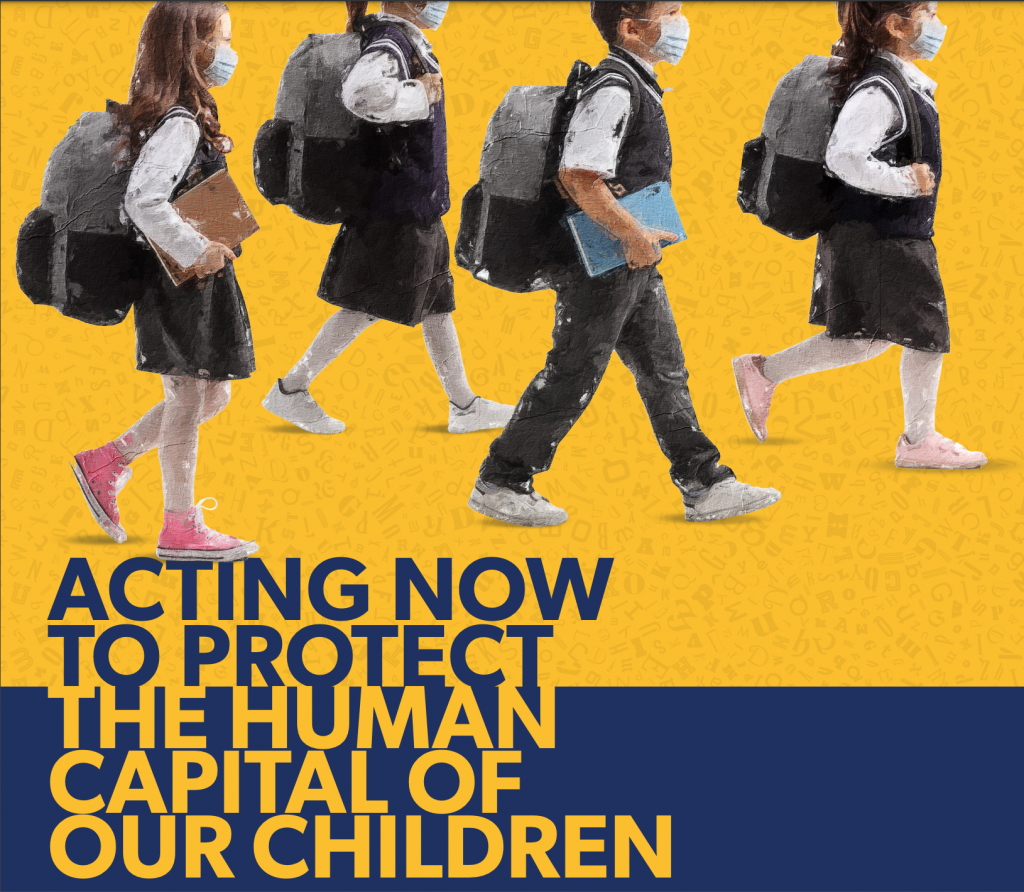
A new World Bank report calls for urgent action to address what it described as an enormous education crisis in Latin America and the Caribbean.
The World Bank highlights that following the massive school closures, as of February 2021, about 120 million school-age children have already lost or are at risk of losing a full academic year of presential education, with serious educational impacts. This is the case of the Dominican Republic, where schools have been closed since 12 March 2020. The Ministry of Education has only authorized partial reopening of pre-schools and elementary schools in municipalities where the Covid-19 positivity rate is under 5%.
The report is named “Acting now to protect the human capital of our children: The costs of and response to the COVID-19 pandemic impact on the education sector in Latin America and the Caribbean.” It urges governments to act immediately to reverse the situation.
The World Bank report recommends countries prepare for the safe and effective reopening of schools nationwide. “This is the worst educational crisis ever seen in the region, and we are worried that there could be serious and lasting consequences for a whole generation, especially for the most vulnerable sectors,” said Carlos Felipe Jaramillo, World Bank Vice President for Latin America and the Caribbean.
In the longer term, the goal is to build education systems that are more inclusive, effective and resilient. Several examples of effective programs exist that could be institutionalized and replicated in the region. The report gives a positive mention to adaptive learning technologies used in the Dominican Republic that it says have helped to provide instruction at the right level.
The report indicates that 15-year old students in Latin America and the Caribbean are, on average, three years behind Organisation for Economic Co-operation and Development (OECD) students in reading, mathematics and science. The report focuses on the wide gaps in education outcomes that reveal regressive patterns of access and quality exacerbated by the pandemic closures. The World Bank report stresses that remote learning cannot replace face-to-face learning.
The report indicates that a survey in the Dominican Republic found that 41% of students are receiving less than two hours of class daily during the pandemic.
The Ministry of Education has been slow in taking provisions for return to in-person learning. The government has focused most of its resources in preparing remote learning programs and in a billionaire purchase of electronic devices for public school students.
The World Bank report acknowledges that teaching-at-the-right level, including through adaptive learning technologies, has the potential to improve learning in the longer-run and could benefit students needing more support. The report states: “Pedagogical interventions that tailor instruction to students’ learning levels and reinforce content depending on individual needs — either teacher-led or facilitated by adaptive learning systems — are effective at improving student test scores and have shown renewed relevance during the crisis. Countries have an opportunity to scale-up these interventions. When enabling conditions are met, adaptive learning systems can be particularly promising. In the Dominican Republic, the use of an adaptive learning platform for the sixth-grade math curriculum is associated with learning gains for pre-intervention lower-performance students.”
The World Bank urges the return to presential classes. “Education systems should get ready for country-wide reopening, and invest the necessary resources to make this happen, to start recovery from the dramatic learning losses and other negative effects of the pandemic. Countries can leverage many emerging lessons and evidence on how to do this safely and effectively. To enable this process, public funding for education needs is to be prioritized and well targeted. Countries need to start exploring efficiency gains, especially in the longer run.”
Read more:
World Bank
17 March 2021

